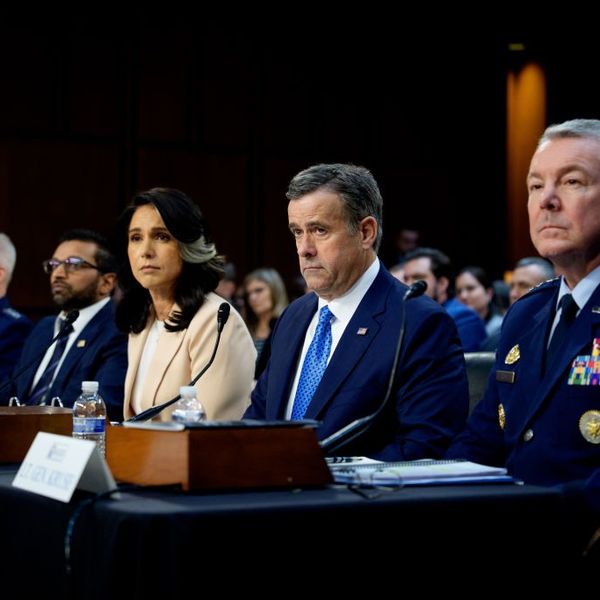"If you know the enemy and know yourself," Sun Tzu once wrote, "you need not fear the results of a hundred battles." When it comes to the War on Terrorism, unfortunately, we have a lot to fear.
The pace of these attacks has become so frequent that we risk gradually becoming inured to their horror that has played out in Brussels, Paris, Dhaka, Baghdad, Riyadh, San Bernardino, Orlando, and Nice.
Each time, we mourn the loss of life, investigate the backgrounds of the killers, and then move on to something else, because we truthfully don’t want to face the hard reality of the spread of homegrown terrorism.
The horrific attack in Orlando has begun to fade from memory. But what has become yesterday’s news still holds critical questions for what we will undoubtedly face in the future.
A significant shift is underway in how Jihadists operate. Groups such as ISIL (also known as ISIS) are encouraging isolated individuals to carry out attacks against soft targets with whatever weapons they have at hand.
Orlando demonstrated that we are unprepared for this new phase in the war on terror. Hard questions have gone unanswered: How could 29 year-old Omar Mir Seddique Mateen been under FBI investigation twice for Islamic extremist ties, yet still manage to kill 49 people and wound 53 more?
Despite clear signs of radicalization, Mateen dropped off the FBI’s radar for the past two years. What warnings were missed? And what measures could the Bureau have taken to thwart this attack?
In the absence of better information from the Bureau, we don’t know precisely why Mateen was dropped as a person of interest. What is apparent, however, is that the FBI had information pointing to his radicalization.
We can expect more terrorists such as Omar Mateen. Islamic extremist groups have mastered the use of social media to inspire individuals, including Americans, to commit violence on their behalf. These decentralized attacks are orders of magnitude more difficult to interdict, since they can occur anytime and anywhere without prior communications or support. These “crowd-sourced” terror attacks have become more commonplace. And while they are smaller in scale, the attacks are very effective in spreading fear by the Islamic terrorists.
To address this new threat, the U.S. must take painful but necessary legal and policy measures to increase our domestic counter-terror capabilities. The recent attacks provide three lessons that we should act on immediately.
First, the FBI needs to have broader legal authority to keep a watchful eye on potential homegrown terrorists. After 9/11, Congress amended the Foreign Intelligence Surveillance Act (FISA) to address so-called “lone wolves,” who are not directly connected to a terrorist organization. However, the law only applies to non-U.S. persons and requires probable cause that a crime is about to be committed.
Congress should further amend FISA to include U.S. persons who have identified themselves to any degree with Islamic extremist violence. While there are of course civil liberty concerns, the surveillance requests would be subject to FISA Court renewals at least every 90 days (the same as the current duration for U.S. citizens suspected of being an agent of an international terrorist organization).
It is critical that the FBI not only have the authority to electronically observe someone with Mateen’s profile for short periods when necessary, but also the flexibility to lightly monitor those suspected individuals over longer periods. This capability is vital, since the radicalization process can occur slowly over many years but then transition rapidly into violent acts.
For instance, given Mateen’s known proclivity for Islamic-inspired violence, the Bureau could have maintained an active dialogue with Mateen’s employers to identify further changes in his behavior. Mateen could also have been placed on the “Known and Appropriately Suspected” (KRT) list, so that his purchase of a firearm would have been flagged.
Second, the FBI and other counter terror agencies must focus on dismantling the eco-system that inspires homegrown terrorists. Contrary to what many pundits claim, homegrown terrorists are not isolated “lone wolves” acting independently out of deranged motives. They are deeply connected to the violent Islamist ideology, which is promoted by terrorist propagandists, radical Muslim clerics, and a network of followers that promote violence by interpreting the Koran literally.
The term “lone-wolf” therefore implies a false disconnect between the would-be attacker and the source of inspiration. While it will remain difficult to stop individual crowd-sourced attacks, it is far more feasible to counter the network attempting to inspire them.
The FBI and other counter-terror agencies must aggressively pursue and dismantle this eco-system, both within the US and abroad, using all capabilities at their disposal.
Third, we need to dedicate the necessary resources to match the scope and scale of the homegrown terror threat.
The FBI currently faces a significant manpower shortage to face this new phase in the war on terror – in fact, the NYPD alone has more officers than the Bureau has agents – and terrorism, while still the top priority, is not the only task on its overloaded plate. After the Orlando attack, the FBI indicated that the volume of investigations into potential Islamic extremist threats has been overwhelming.
Unfortunately, we don’t have the luxury of tailoring our threats to our resources. The government must look seriously at what’s needed to combat homegrown terrorism. Whether it’s a problem of inadequate manpower, insufficient “rules of engagement,” ineffective investigative techniques, or some combination of the three, we need to figure it out and fix it – fast.
As Leon Trotsky aptly put it: “You may not be interested in war, but war is interested in you.” Unless we recognize that reality and change our approach accordingly, we won’t succeed in this new phase in the long war against radical Islam.















